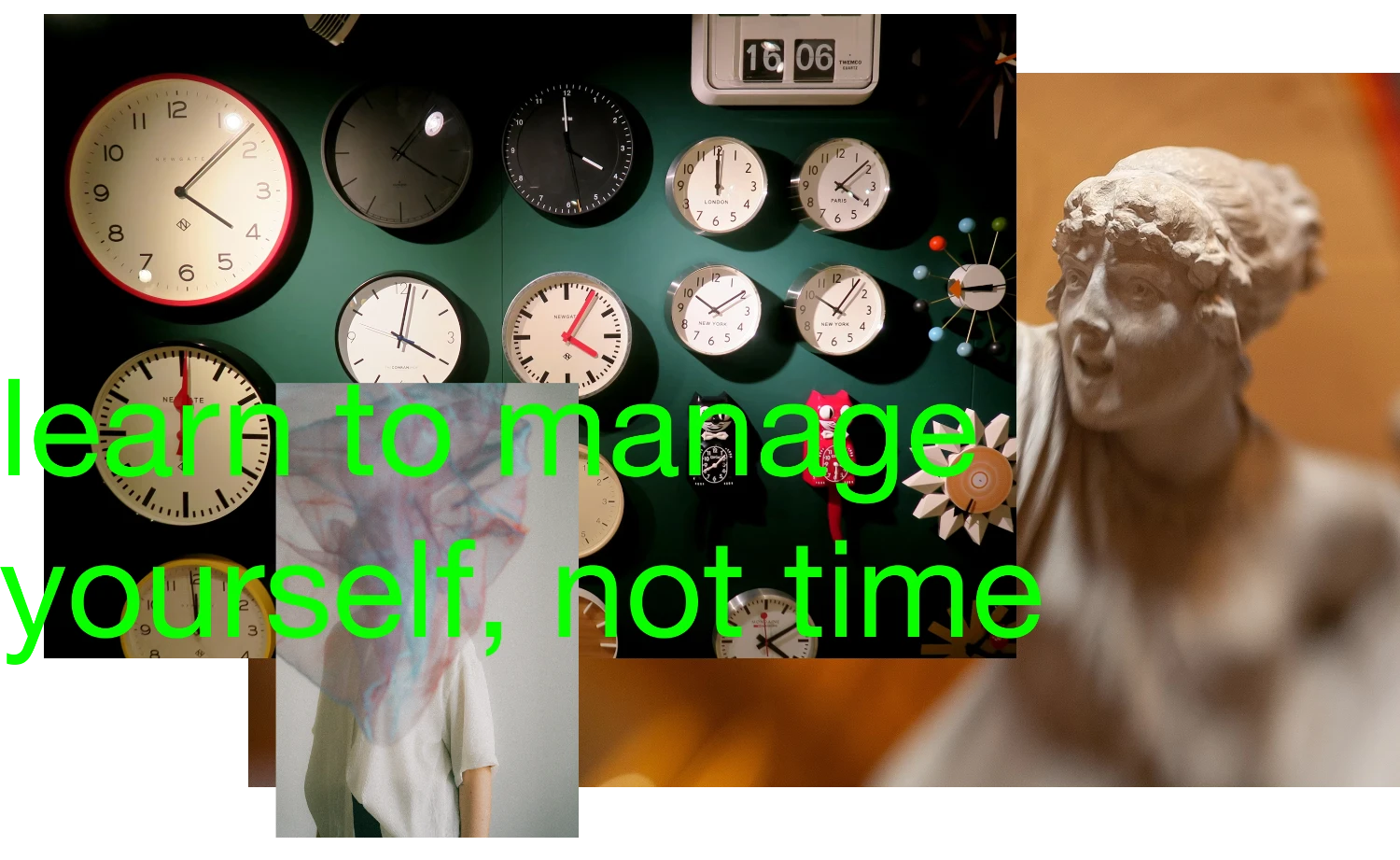first time i heard the term “time anxiety” was in the book of the same name by chris guillebeau. and i immediately understood what it was about.
you’re sitting on a beach, the sun is setting, everything seems great… but instead of soaking in the moment, your brain’s somewhere else. it’s thinking about the emails you haven’t answered. the big life goals you should be working on. the slow crawl toward the inevitable “not enough time.”
that creeping, restless feeling? that’s time anxiety—a sneaky, modern-day monster that makes you feel like you’re always behind, even when everything’s technically fine.
so, what is time anxiety?
time anxiety is the sense that you’re not doing enough with your time—or that you’re running out of it entirely. it’s when even fun moments feel tinged with guilt. or when you obsess over how to “maximize” your productivity to the point where your entire day starts to feel like one big checklist.
guillebeau describes it as a kind of background hum: always there, always nagging. even on good days. especially on good days.
why? because we’ve turned time into a currency to spend well. and the pressure to spend it perfectly is exhausting.
why you can’t out-hustle time anxiety
the thing is, you can’t just organize your way out of this. no app, planner, or new morning routine is going to fix it if you’re still living by the rule: “i’ll feel better once i get more done.”
spoiler: you won’t. because the to-do list always grows back.
“You overestimate what you can do in a day, but you underestimate what you can do over longer periods of time.”
translation? you’re not lazy. you’re just working with a broken scale.
coping with time anxiety (without quitting your life)
let’s not get too dramatic. you don’t need to move to the mountains or throw your phone in the ocean. but you do need to change how you think about time—and how you spend it.
here’s how:
1. manage yourself, not time
productivity hacks are great—until they turn you into a frazzled robot. guillebeau suggests flipping the script:
“Learn to manage yourself, not time.”
start by:
- acknowledging you probably only have 3–4 hours of real focus per day.
- picking 3 main priorities (max!) for a day. if you’ve got lots of meetings, go for 2.
- scheduling time for responding to messages instead of checking every ping.
- turning off notifications. seriously. just do it.
2. stop trying to map the whole path
time anxiety thrives when we try to control everything. we want to see the whole map before we take the first step.
but friction lives there. ease lives in movement.
“What’s one small action I can take to move forward?”
ask that. then just… do it. imperfectly.
3. reassess what you’re actually doing
we waste a lot of time doing things we don’t even like anymore.
“Consider the media you’re currently consuming… Maybe something else would be better.”
ask yourself:
- am i doing this because it brings value or joy?
- or just because i always have?
edit your habits. unsubscribe. delete the apps. or not. just be intentional.
4. embrace the power of un-finishing
one of the most radical ideas from the book: you don’t have to finish everything you start.
“Learn to un-finish.”
hate the book you’re halfway through? ditch it.
that project that’s draining you and going nowhere? let it go.
you don’t get bonus points for suffering through stuff that isn’t serving you.
5. make time for “special days”
you don’t need a life overhaul. you need moments.
one of the most charming stories in the book is when guillebeau walks 20 miles just to eat cornbread at a restaurant. was it productive? no. was it meaningful? absolutely.
he frames it this way:
“If your life was a movie and you were the director, what scenes would you add to it?”
let yourself have those moments. create them on purpose.
6. practice presence
mindfulness is in every book these days, but for a reason. time anxiety pulls you into a loop of “what’s next?” or “what if i’d done x differently?”
guillebeau reminds us:
“Downtime is essential.”
so stop feeling guilty for resting. rest is not the opposite of progress—it’s part of it.
7. face more. avoid less.
avoidance feels like relief… until it turns into dread.
“Make a to-do list of everything you’re putting off.”
yep. write it all down. decide on one small step for each thing. don’t try to finish everything—just face it.
final thought: you’re not a machine. you’re a movie.
there’s a moment in the book where guillebeau says:
“Thinking about your life as a movie—one where you’re the director—can help you make key decisions.”
that stuck with me. because time anxiety often comes from living like a spreadsheet. but life? life is a film. messy, beautiful, weird, sad, joyful, boring, delightful.
direct it accordingly.
tl;dr
- time anxiety is the pressure to “use time well” that ends up making you feel behind all the time.
- you can’t fix it by just doing more—you have to think differently.
- work with your limits, not against them.
- focus on presence, not perfection.
- create small moments that feel meaningful.
- let some stuff go. for real.
you’ve got more time than you think—you just don’t have to spend it all the same way.

Leave a Reply